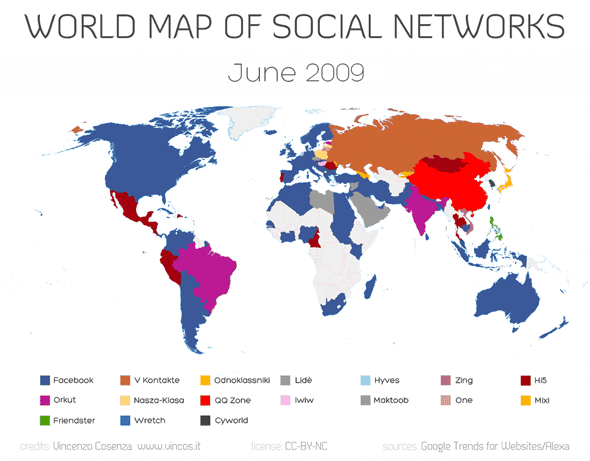Decentralization is a concept that has gained significant traction in recent years. At its core, decentralization refers to the distribution of authority, control, and decision-making away from a central authority. This shift can manifest in various forms, from political systems to technological frameworks.
By dispersing power, decentralization aims to create a more equitable environment where individuals have greater autonomy and influence over their lives. Decentralization empowers individuals and communities, allowing them to take charge of their own destinies, rather than relying on a centralized entity.
Decentralization enhances transparency and accountability, as decision-making processes become more open and accessible. In a world where trust in institutions is quickly waning, decentralization offers a refreshing alternative that prioritizes individual agency and collective responsibility.
Curious about decentralization and the power of blockchain? 🌐💡
Take the first step toward true financial freedom by exploring the world of crypto. With VALR, you can easily buy your first digital assets and start navigating the future of finance—secure, borderless, and decentralized.
👉 Click here to get started with VALR and unlock the potential of cryptocurrency today!
Key Takeaways
- Decentralization means distributing power and decision-making authority away from a central authority, allowing for more autonomy and flexibility.
- Blockchain and cryptocurrencies are examples of decentralized technologies that have the potential to revolutionize industries and disrupt traditional systems.
- Embracing decentralization in governance and decision-making can lead to more transparency, accountability, and inclusivity in decision-making processes.
- Decentralization can have a significant impact on traditional institutions and industries, challenging existing power structures and business models.
- Overcoming challenges and barriers to embracing decentralization requires addressing issues such as scalability, interoperability, and regulatory concerns.
The Rise of Decentralized Technologies: Blockchain, Cryptocurrencies, and Beyond
In recent years, decentralized technologies have emerged as powerful tools that challenge traditional systems. Blockchain technology, for instance, serves as the backbone for cryptocurrencies like Bitcoin and Ethereum. By enabling secure, transparent transactions without the need for intermediaries, blockchain has revolutionized how we think about currency and value exchange.
This technology facilitates financial transactions and has applications in supply chain management, healthcare, and even voting systems. Cryptocurrencies are perhaps the most well-known manifestation of decentralized technology. They allow individuals to conduct transactions directly with one another, bypassing banks and other financial institutions. This shift has the potential to democratize finance, making it accessible to those who may have been excluded from traditional banking systems.
However, the rise of cryptocurrencies also brings challenges, such as regulatory concerns and market volatility. As you explore this new frontier, it’s essential to stay informed about both the opportunities and risks associated with these technologies.
Embracing Decentralization in Governance and Decision-Making

Decentralization is not limited to technology; it also has profound implications for governance and decision-making processes. Traditional hierarchical structures often lead to inefficiencies and a lack of responsiveness to the needs of citizens. By embracing decentralization in governance, communities can foster more participatory decision-making processes that reflect the diverse voices within them. This approach encourages collaboration and empowers individuals to take an active role in shaping their communities.
One notable example of decentralized governance is the use of participatory budgeting, where citizens have a direct say in how public funds are allocated. This practice enhances transparency and builds trust between citizens and their governments.
As you consider the potential of decentralized governance models, think about how they can lead to more inclusive policies that address the unique needs of various communities. By prioritizing local knowledge and expertise, decentralized governance can create more resilient and adaptive systems.
The Impact of Decentralization on Traditional Institutions and Industries
| Traditional Institutions and Industries | Impact of Decentralization |
|---|---|
| Banking | Disintermediation, reduced fees, and increased access to financial services |
| Media | Shift in power from centralized media outlets to decentralized platforms, increased diversity of content |
| Government | Potential for more transparent and efficient governance, reduced bureaucracy |
| Supply Chain | Improved traceability, reduced fraud, and increased efficiency |
As decentralization continues to gain momentum, traditional institutions and industries are feeling its effects. Many established organizations are being challenged by new entrants that leverage decentralized technologies to offer revolutionary new solutions.
For instance, the rise of peer-to-peer platforms has disrupted industries such as transportation and hospitality, allowing individuals to share resources directly with one another. This shift creates new economic opportunities and encourages a sense of community among users.
However, the impact of decentralization is not solely positive for traditional institutions. Many are grappling with the need to adapt or risk becoming obsolete. This transformation requires a willingness to embrace change and rethink established practices.
As you observe these shifts, consider how traditional organizations can learn from decentralized models to enhance their own operations. By adopting more flexible structures and fostering collaboration, they can remain relevant in an increasingly decentralized world.
Overcoming Challenges and Barriers to Embracing Decentralization
While the benefits of decentralization are clear, there are also challenges that must be addressed for it to be fully realized. One significant barrier is the resistance from established institutions that may feel threatened by the shift away from centralized control. These entities often have vested interests in maintaining the status quo, making it difficult for decentralized initiatives to gain traction. To overcome this resistance, advocates for decentralization must engage in dialogue with traditional institutions, highlighting the potential benefits of collaboration, rather than confrontation.
Another challenge lies in the technological barriers that can hinder access to decentralized systems. Not everyone has the same level of digital literacy or access to technology, which can create disparities in participation. To foster inclusivity, education and resources must be made readily available. This will empower individuals to engage with decentralized technologies effectively. By addressing these challenges head-on, we can help pave the way for a more equitable decentralized future.
The Role of Decentralization in Fostering Innovation and Entrepreneurship
Decentralization has a unique ability to foster innovation and entrepreneurship by creating an environment where diverse ideas can flourish. When power is distributed among many, rather than a concentrated, individuals are encouraged to experiment and take risks without fear of retribution from a central authority. Fostering this culture can lead to groundbreaking solutions that address the pressing societal challenges of our time.
Moreover, decentralized networks often facilitate collaboration among entrepreneurs from different backgrounds and regions. By connecting individuals with complementary skills and resources, decentralized networks can spark new ventures that might not have been possible within traditional frameworks. As you explore opportunities for innovation in your own endeavors, consider how embracing decentralization can unlock new possibilities for collaboration and creativity.
Curious about decentralization and the power of blockchain? 🌐💡
Take the first step toward true financial freedom by exploring the world of crypto. With VALR, you can easily buy your first digital assets and start navigating the future of finance—secure, borderless, and decentralized.
👉 Click here to get started with VALR and unlock the potential of cryptocurrency today!
Decentralization and the Future of Work: Opportunities and Challenges
The future of work is being reshaped by decentralization in profound ways. Remote work arrangements have become increasingly common, allowing individuals to collaborate across geographical boundaries, without being tethered to a central office location. This shift provides more flexibility, and opens up opportunities for talent from diverse backgrounds to contribute their skills to projects worldwide.
However, this new landscape also presents challenges that must be navigated carefully. As work becomes more decentralized, issues related to job security, benefits, and worker rights come to the forefront. It’s essential for both employers and employees to engage in conversations about how to create fair working conditions in this evolving environment. By prioritizing transparency and open communication, you can help ensure that the benefits of decentralization extend to all workers.
The Ethical and Social Implications of Embracing a Decentralized Era
As we move further into an era defined by decentralization, we must consider the ethical and social implications of this shift. While decentralization offers many advantages, it raises questions about accountability and governance in a system where power is dispersed. Without clear guidelines and ethical frameworks, there is a risk that decentralized systems could perpetuate inequalities or enable harmful behaviors.
To navigate these complexities, individuals and organizations must engage in ongoing discussions about ethics in decentralized contexts. This includes considering how decisions are made within decentralized networks and ensuring that marginalized voices are heard in the process. By fostering a culture of responsibility and inclusivity, you can contribute to a more equitable decentralized future that benefits everyone.
Conclusion
Understanding decentralization is key to navigating the changes it brings across various sectors of society. From technology to governance, its impact is profound and far-reaching. By embracing decentralization thoughtfully and responsibly, you can play an active role in shaping a future that prioritizes empowerment, innovation, and inclusivity for all.
If you are interested in protecting your sovereignty, you may want to check out this article on password managers. Password managers are a crucial tool for securely storing and managing your passwords, and understanding how they work can protect your information.
Curious about decentralization and the power of blockchain? 🌐💡
Take the first step toward true financial freedom by exploring the world of crypto. With VALR, you can easily buy your first digital assets and start navigating the future of finance—secure, borderless, and decentralized.
👉 Click here to get started with VALR and unlock the potential of cryptocurrency today!
Subscribe for free tips and tools >
FAQs
What does “decentralized” mean?
Decentralized refers to a system or organization that is not controlled by a single central authority. Instead, decision-making and control are distributed among multiple participants.
How does decentralization work?
Decentralization works by distributing power, authority, and decision-making to multiple nodes or participants within a network. This can be achieved through various mechanisms such as blockchain technology, peer-to-peer networks, or distributed consensus algorithms.
What are the benefits of decentralization?
Some of the benefits of decentralization include increased transparency, reduced risk of single points of failure, greater resilience, and the potential for more democratic decision-making processes.
What are some examples of decentralized systems?
Examples of decentralized systems include blockchain networks (such as Bitcoin and Ethereum), peer-to-peer file sharing networks (such as BitTorrent), and decentralized autonomous organizations (DAOs).
What are the challenges of decentralization?
Challenges of decentralization include scalability issues, governance challenges, potential for increased complexity, and regulatory uncertainty in some cases.




